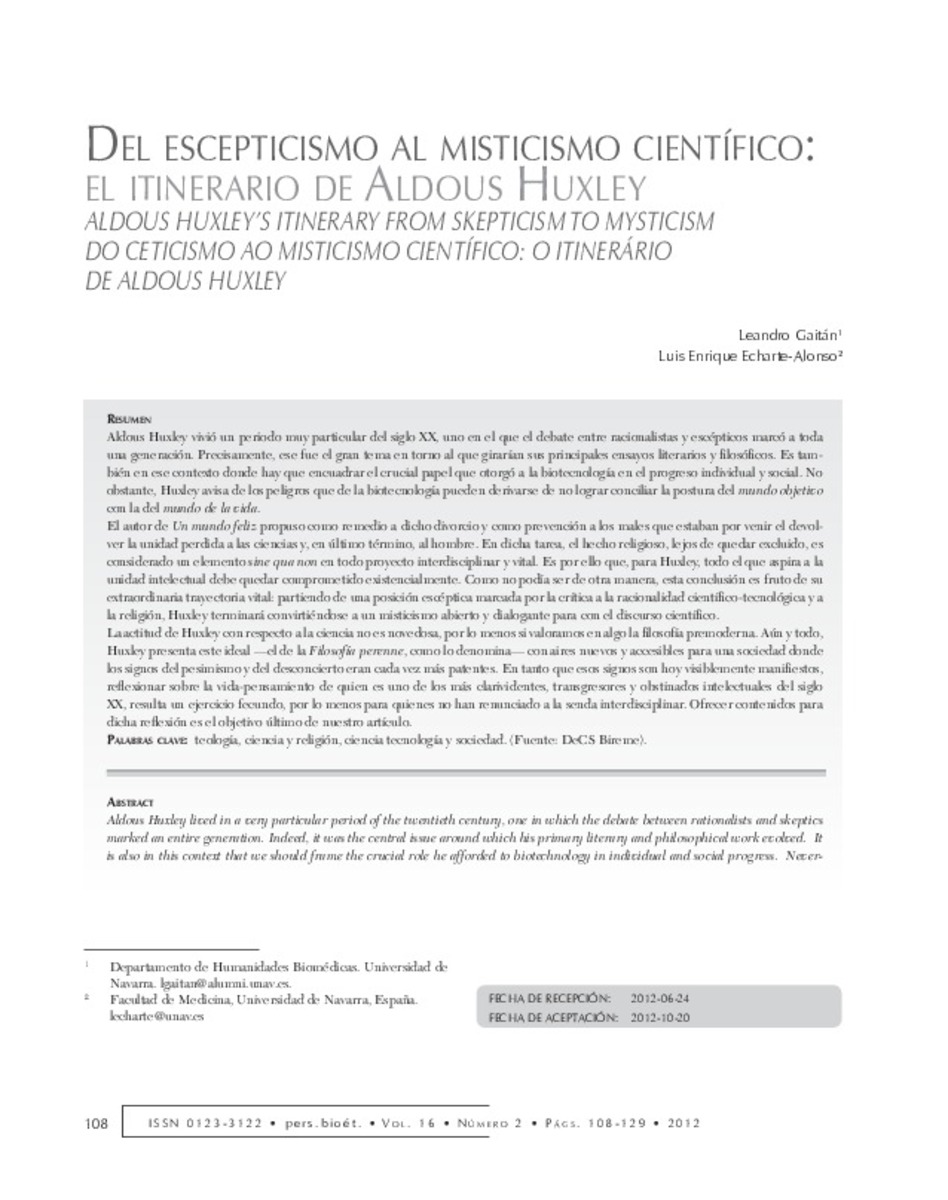Del escepticismo al misticismo científico. El itinerario de Aldous Huxley
Ficheros en este ítem:
Estadísticas e impacto
Los ítems de Dadun están protegidos por copyright, con todos los derechos reservados, a menos que se indique lo contrario.









